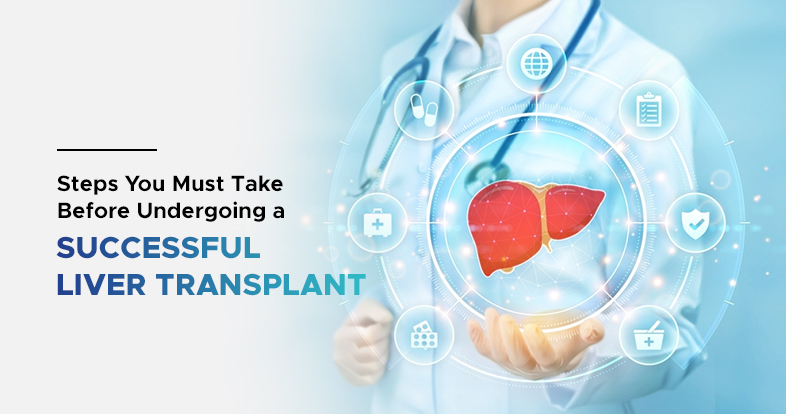A liver transplant is a life-saving procedure for individuals suffering from severe liver disease. The process involves replacing a diseased liver with a healthy one from a donor. The journey to a successful liver transplant is complex and requires careful planning and preparation. If you're considering a liver transplant in India, it's crucial to understand the steps involved to ensure the best possible outcome. This blog will guide you through the essential steps you must take before undergoing a liver transplant.
Steps to Take Before Undergoing a Liver Transplant
Step 1: Consultation with Your Healthcare Team
The first step towards a liver transplant is consulting with your healthcare team. This includes your primary care physician, hepatologist, and a transplant surgeon. They will evaluate your condition, discuss the necessity of the transplant, and provide you with comprehensive information about the procedure, risks, and benefits. This initial consultation sets the stage for the subsequent steps and helps you make an informed decision.
Step 2: Evaluate Your Support System
Undergoing a liver transplant is a significant life event that requires a strong support system. Assess your family, friends, and community support. You will need emotional, physical, and logistical support throughout the process, from pre-surgery preparation to post-surgery recovery. Having a dedicated support system can greatly enhance your recovery and overall well-being.
Step 3: Financial Planning and Insurance Coverage
A liver transplant is an expensive procedure. It is essential to review your financial situation and understand your insurance coverage. Speak with your insurance provider to determine what is covered and what out-of-pocket expenses you might incur. Additionally, explore financial assistance programs that may be available to help offset costs. Proper financial planning ensures that you can focus on your health without the added stress of financial worries.
Step 4: Lifestyle Adjustments
Making necessary lifestyle adjustments is crucial for a successful liver transplant. This includes adopting a healthy diet, quitting smoking, reducing alcohol consumption, and maintaining a healthy weight. Your healthcare team will provide specific guidelines tailored to your condition. These changes not only prepare your body for surgery but also enhance your overall health and improve your chances of a successful transplant.
Step 5: Attend Transplant Education Classes
Transplant education classes are designed to provide you with detailed information about the transplant process, what to expect before, during, and after surgery, and how to take care of yourself post-transplant. These classes are an invaluable resource, helping you and your caregivers understand the journey ahead and how to navigate it successfully.
Step 6: Complete Pre-Transplant Testing
Pre-transplant testing is a critical step in the preparation process. This involves a series of medical tests and evaluations to ensure you are a suitable candidate for the transplant. Tests may include blood tests, imaging studies, heart and lung evaluations, and other specialized assessments. Completing these tests helps your healthcare team create a personalized treatment plan and identify any potential issues that need to be addressed before surgery.
Step 7: Build a Healthy Support Team
In addition to your personal support system, it's essential to build a healthy support team that includes healthcare professionals, such as dietitians, physical therapists, and mental health counselors. These professionals will play a vital role in your pre- and post-transplant care, providing guidance, support, and resources to help you achieve the best possible outcome.
Step 8: Create a Post-Transplant Plan
A comprehensive post-transplant plan is essential for a successful recovery. This plan should include follow-up appointments, medication schedules, dietary guidelines, and physical activity recommendations. Work closely with your healthcare team to develop a plan tailored to your needs. Having a clear post-transplant plan in place ensures that you are well-prepared for the recovery journey and can proactively address any potential challenges.
Conclusion
Preparing for a liver transplant involves a series of critical steps that require careful planning and coordination. From consulting with your healthcare team to creating a post-transplant plan, each step plays a vital role in ensuring a successful outcome. If you're considering a liver transplant in India, following these steps will help you navigate the process with confidence and improve your chances of a successful recovery. Remember, your healthcare team is there to support you every step of the way, so don't hesitate to reach out for guidance and assistance.

Comments
Post a Comment